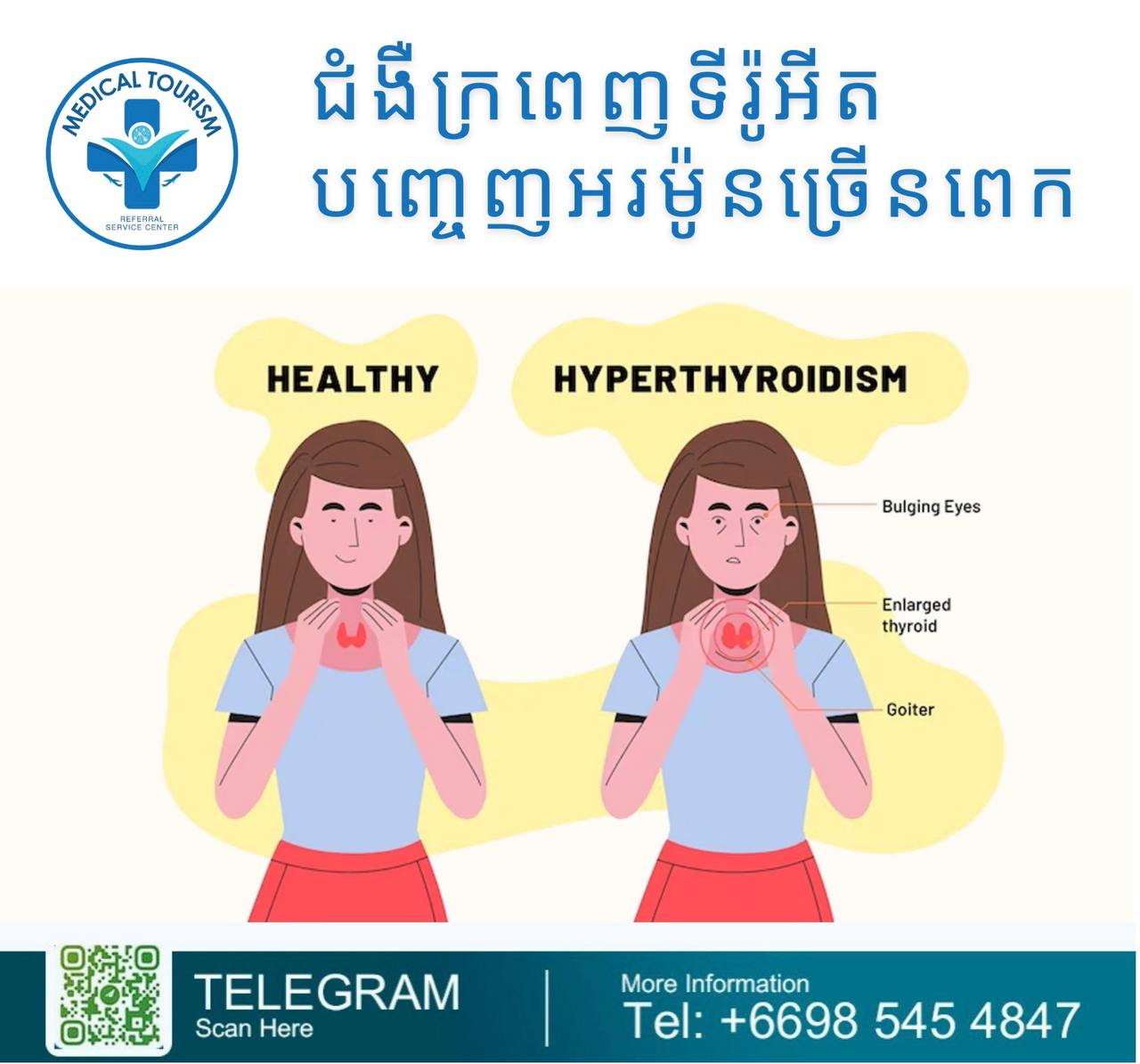Diseases October 18th, 2024
Hyperthyroidism

Hyperthyroidism, also known as overactive thyroid, is a condition where your thyroid gland produces too much thyroid hormone. This can speed up your metabolism and cause a variety of symptoms.
Symptoms
– Rapid Heartbeat: Palpitations or a racing heart.
– Weight Loss: Despite an increased appetite.
– Nervousness and Anxiety: Feeling jittery or anxious.
– Tremors: Shaking hands or fingers.
– Heat Sensitivity: Feeling unusually warm.
– Fatigue and Muscle Weakness: Despite increased activity.
– Frequent Bowel Movements: Increased bowel movements or diarrhea.
Diagnosis
Diagnosis typically involves a physical exam, medical history, and blood tests to measure levels of thyroid hormones (T3 and T4) and thyroid-stimulating hormone (TSH).
Treatment Options
– Antithyroid Medications: Drugs like methimazole or propylthiouracil help reduce the production of thyroid hormones.
– Beta Blockers: Medications like propranolol can help manage symptoms such as rapid heart rate, sweating, and anxiety.
– Radioactive Iodine: This treatment destroys overactive thyroid cells, reducing hormone production.
– Surgery: In severe cases, part or all of the thyroid gland may be surgically removed (thyroidectomy).
Lifestyle and Home Remedies
– Stress Management: Techniques like yoga, meditation, and deep breathing can help manage stress.
– Healthy Diet: Eating a balanced diet with adequate iodine can support thyroid health.
– Regular Exercise: Helps manage weight and reduce stress.
It’s important to work with a healthcare provider to determine the best treatment plan for your specific situation.
Have you or someone you know been diagnosed with hyperthyroidism?
- Tags:
- Hyperthyroidism, ក្រពេញទីរ៉ូអីត



